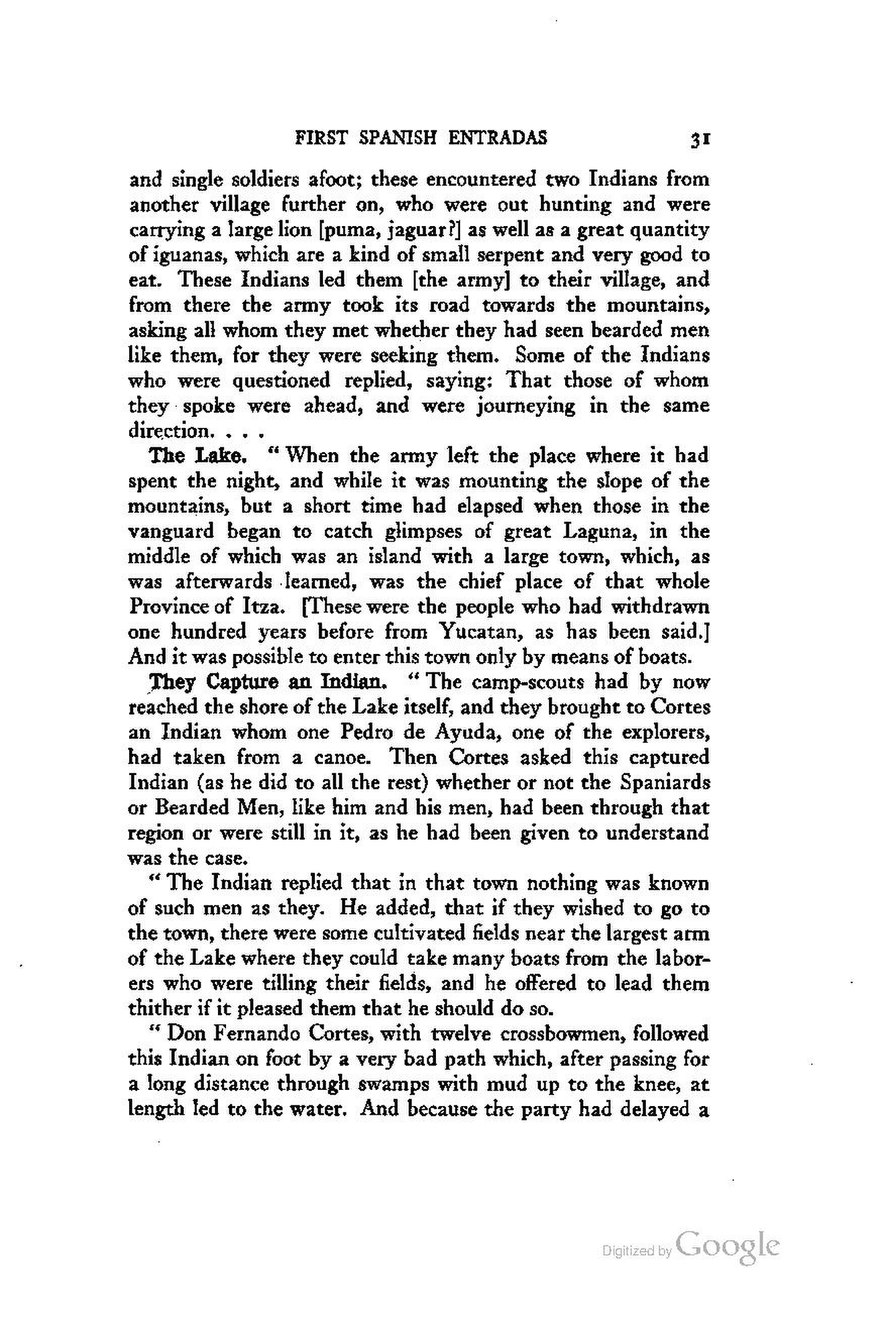and single soldiers afoot; these encountered two Indians from another village further on, who were out hunting and were carrying a large lion [puma, jaguar?] as well as a great quantity of iguanas, which are a kind of small serpent and very good to eat. These Indians led them [the army] to their village, and from there the army took its road towards the mountains, asking all whom they met whether they had seen bearded men like them, for they were seeking them. Some of the Indians who were questioned replied, saying: That those of whom they spoke were ahead, and were journeying in the same direction....
The Lake. “When the army left the place where it had spent the night, and while it was mounting the slope of the mountains, but a short time had elapsed when those in the vanguard began to catch glimpses of great Laguna, in the middle of which was an island with a large town, which, as was afterwards learned, was the chief place of that whole Province of Itza. [These were the people who had withdrawn one hundred years before from Yucatan, as has been said.] And it was possible to enter this town only by means of boats.
They Capture an Indian. “The camp-scouts had by now reached the shore of the Lake itself, and they brought to Cortes an Indian whom one Pedro de Ayuda, one of the explorers, had taken from a canoe. Then Cortes asked this captured Indian (as he did to all the rest) whether or not the Spaniards or Bearded Men, like him and his men, had been through that region or were still in it, as he had been given to understand was the case.
“The Indian replied that in that town nothing was known of such men as they. He added, that if they wished to go to the town, there were some cultivated fields near the largest arm of the Lake where they could take many boats from the laborers who were tilling their fields, and he offered to lead them thither if it pleased them that he should do so.
“Don Fernando Cortes, with twelve crossbowmen, followed this Indian on foot by a very bad path which, after passing for a long distance through swamps with mud up to the knee, at length led to the water. And because the party had delayed a
